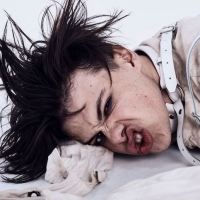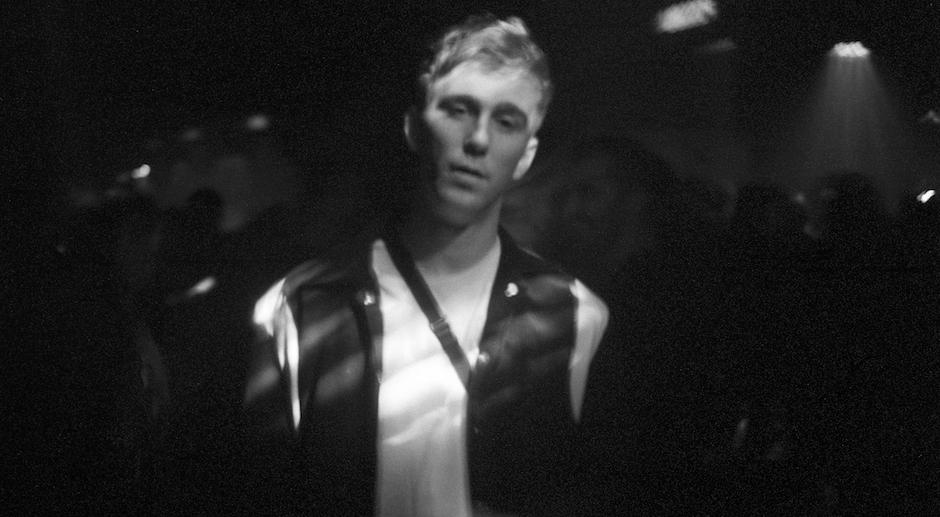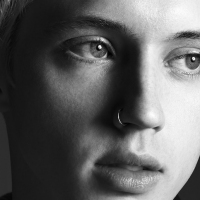 Punk, Politics and Polygraph Eyes – An Interview with YUNGBLUDWith the release of his debut album under his belt and a run of Australian shows to come, we catch up with YUNGBLUD – the future of music.
Punk, Politics and Polygraph Eyes – An Interview with YUNGBLUDWith the release of his debut album under his belt and a run of Australian shows to come, we catch up with YUNGBLUD – the future of music.

Meet the UK's most exciting musical chameleon, SG Lewis
We talk to the continually evolving London musician about UK club culture, live shows and his three-part debut album.
Header photo supplied.
It's obvious that England is electronic music's most prominent home. However, one thing that always captures me is how the country and its dance music scene seemingly has a hold on every single sub-genre and sound there is under the loose-fitting dance music umbrella. Acts like Orbital and The Chemical Brothers literally invented some of these sounds, and ever since it's been the UK's game - no matter what genre. Jamie XX and Four Tet, among many others, are kings of the intoxicating, club-influenced pulse that has seen them become some of the genre's most influential and acclaimed, while others have taken the electronic backbone and taken it to regions otherwise underexplored, becoming front-runners and tastemakers of their respective sub-genres in the time since.
From the experimental drive of Aphex Twin and the pop-house pulse of Disclosure to Massive Attack's down-tempo collectiveness and the somewhat relentless and over-sensory rhythm of Andy C, British producers are seemingly able to adapt and grow to the trends rising in both the underground and the mainstream, unrestricted by the geographical boundaries that may impact Australia's non-trap and non-future-bass markets in a post-Flume/post-Alison Wonderland world (with the recent exception of acts like RÜFÜS DU SOL and Fisher, who have been able to bring something new to the international markets to break free from Australia's geographical shackles). It's this sense of genreless madness that makes the UK such a safe-haven for electronic music and promotes the country's constant unique growth - something that the quickly-rising SG Lewis is attempting to embody in his own spiralling and often genre-bounding productions.
SG Lewis, the musical alias of London-via-Reading musician and multi-instrumentalist Sam Lewis, may not be as big as the aforementioned names of Disclosure and Aphex Twin, nor is he even close, but he has taken one thing on board in his time growing up in electronic music's home surrounded by some of the world's best. You see, it's impossible to enclose SG Lewis within one genre. Over the last four years, Lewis has continually defied genre boundaries with release after release, mixing his signature, often funk-fuelled electronic backbone with thick layers of pop, R&B, indie, soul or hip-hop, mainly depending on who he's collaborating with. In his past work and work yet to come, Lewis has collaborated with some of music's most exciting and acclaimed, ranging from AlunaGeorge and Gallant to J Warner and Clairo, with Lewis building intricate yet vast and thickly layered productions to masterfully compliment the signature sound of every musician he works alongside.
His debut album, an elaborate, three-part affair titled Dusk, Dark, Dawn, showcases this the best, with the bouncy, now-well-familiar vocals of AlunaGeorge's Aluna Francis sitting alongside the soulful croon of J Warner on the already released Dusk highlight Aura, with Lewis' percussive productions doing everything they should to highlight and emphasise the numerous guest collaborators while also strengthening his signature production core. Simply put, SG Lewis is a musical chameleon - and he's one of the best at it.
The first third of his debut album, Dusk, arrived earlier this year, and after collaborations with act-of-the-moment Clairo and now Australian favourites AlunaGeorge out in the world, the final two-thirds of his debut is quickly approaching. Recently in the country for a brief, yet celebrated east-coast Australian tour - his first in the country - we caught up with Lewis to talk about the art of good electronic music albums, Liverpool's extensive and genre-less club scene, and his captivating live show.
You’re releasing your debut album in three parts – Dusk, Dark and Dawn. How did this concept come about?
So basically, when I went out to make an album I wanted to find a purpose to the album outside of it being just ten songs. I find that electronic music albums can sometimes suffer from having a lack of central narratives, so I thought the idea of a concept album was kind-of appealing to me, for that reason. I guess I thought it would be easier to give the album a bit more of a story or a purpose.
I was in London on the tube when I came up with the concept of the album. Basically, I want the three parts of the album to be my interpretation of the different kinds of music that revolve not just directly around clubs and parties and club culture, but more as a side-product of club culture if that makes sense. It’s not the most articulate way to explain it, but basically the music it’s the music you’d find at the start of the night, then the middle of the night, then the end of the night. Even if the music wasn’t designed for the club or didn’t have the club in mind, it’s still a part of that journey and it’s the music people listen to at the start of the night, the middle of the night and so on. It’s my interpretation of that.
And did you think that this interpretation wasn’t possible over a classic format album? Or did you just think it might be a bit easier over three distinct parts?
I found that a ten-track format doesn’t quite give you the opportunity to take the listener through that journey. There are three separate parts to this album. I’ve classified it as a three-part album. And it’s not necessarily a project that people should listen to start to finish. I’d be happy for people to do that, but I think the idea is to listen to it separately.
I wanted to do something that hasn’t been done before or hasn’t been done a lot before, and I thought a three-part album was the best way for the listeners to digest each part and for me to show all the different sides to the album and the concept.
There’s a real electronic backbone to your music, but it’s intertwined with pop, indie, R&B and other genres. Do you have to find a balance in your music with all the different sounds you’re taking on?
Yeah, I’m glad to hear that you picked that up because I definitely consider electronic music to be the backbone of it, but I do have an eclectic taste in music and I like to listen to a lot of different styles of music. My mind has always been at the risk of trying to apply too many different styles to one project, but there’s never been any intentional boundary to my music. I’ve always done what’s felt natural with the project. If I like the sound of something, there’s no reason in my head why I can’t apply it to the electronic side of what I do. There’s never been any conscious “oh I have to do this” or “stop doing this”, it’s always just kind of been whatever felt good.

SG Lewis and Aluna Francis. Photo supplied.
Just to switch things up – you started off DJing in Liverpool, right?
Yeah, that’s correct.
What’s the club scene like there?
I was in Liverpool for about two years. It was my first proper exposure to club culture and club music – I had never been in clubs before that because there were never any around me, nor was there ever a rich electronic scene or anything like that. Liverpool has such a rich and diverse music scene. There’s an amazing indie-rock band scene, and there’s a big techno scene, club scene and so on. It’s such a mix there; it’s an amazing place to get an education in club music and music in general, y’know?
There was a club I used to go to all the time that was notorious for bringing together a wide range of acts, like you could see Ben Klock but on the same bill, in a different room, you could see someone like Andy C. It was such a mish-mash of styles but for some reason, in that scene, it just worked. It’s an almost city to get that education.
Do you think this mish-mash of sounds you came across while out in Liverpool maybe influenced your approach to music now and how you like to mish-mash sounds in production?
I’ve never given that any thought but you’re actually right in a way. I think the best thing about Liverpool is that it’s not snobby – it doesn’t have the high-browness of London, you know? Well from where I was standing anyway, Liverpool always had this relaxed, anything-goes attitude and yeah, it could’ve indirectly had an influence on the way I make music. Maybe if I had not had that relaxed upbringing in Liverpool, then maybe I wouldn’t be so open to so many genres or collaborators.
London’s having a bit of a crisis when it comes to nightlife at the moment. I read that since 2008, 50% of the nightclubs and live venues over London have closed down, including some really influential ones like Fabric – which has since reopened under unnecessarily strict rules. Do you believe that the changing face of nightlife in London will affect the city’s music – particularly club music – output?
When there is oppression of music and music scenes, there are often scenes that are born out of it. So, I think it would be impossible to squash the London music scene or musical output – there’s just so many people there, creatives especially, that no matter what steps are being taken by the government or whoever, something will always arise out of the concrete.
At the same time, it would force things back underground. I think the closure of the venues would maybe impact the more commercial side of club culture, but much of it will just go back underground I think. Authorities will decide that they don’t like it, change laws again, some places will die, other places will go further underground, and so on. I think the evolution of clubbing in London will continue to naturally progress and change, but I think the rising price of London – particularly central London – will impact it more. I think that geographically, much of the new scenes in London will spring up in the outskirts of London rather than centrally – where it’s expensive.
You’re touring with your full live show in Australia, right?
Yeah, that’s right.
What does that live show consist of?
The live show is five people on stage. There’s the drummer, who plays the electronic sample drums, the proper drums and so on. Then there’s the keyboard player who takes on any synth I’m not playing. There’s my set-up – which includes a bass guitar, an electric guitar, a sample pad, a few more bits and bobs and then there are the vocals. Some of the songs I sing in the live show, and then there are the songs with features who, of course, are more often than not unavailable, so we have some touring vocalists who fill in those gaps depending on you know? What works best and so on.
It’s something I’m really proud of. I think it’s the truest live representation of the music that I can create. It’s been developed over the past couple of years. When I started music I was DJing, and I just found I was going into these sets with this feeling that I had to hold the dancefloor if you know what I mean. Like the club or festival environment meant high BPM, high energy stuff when a lot of my music is not up-tempo. I would play these sets at clubs and festivals where people would be like “Hey! Play this!” and it’s like “I can’t! It’s too slow sorry!” I ended up not giving the fans the songs they wanted to see because they were too slow for the DJ environment.
But yeah, anyway, that’s where the live show sort-of came from. It’s a constantly evolving.
Yeah, you actually have a good reason to tour a live show. With electronic music, it’s so easy to go down the DJ route because it’s easy and cheaper, but sometimes the DJ route just doesn’t make sense for some artists – like yourself.
Yeah, I’m still someone who loves DJing, but I see DJing and live shows as two separate things. I know it’s a lot easier to tour a DJ show – it’s a lot cheaper, especially playing overseas like in Australia. Like, for my first American tour, I lost a lot of money because it was just so expensive to do. But for me, and with my music being sat between so many different worlds, it felt like such a necessity to do a live show because nothing else made sense really. I can’t play all my originals in a DJ set, especially after learning how to play clubs and club-like environments through my time as a resident DJ.
I can’t really show up to a DJ set, play one of my slower, down-tempo songs in full, and expect the dancefloor to be happy with that. Whereas with the live show I can, and I guess that’s why I do it.
Follow SG Lewis: FACEBOOK
 Punk, Politics and Polygraph Eyes – An Interview with YUNGBLUDWith the release of his debut album under his belt and a run of Australian shows to come, we catch up with YUNGBLUD – the future of music.
Punk, Politics and Polygraph Eyes – An Interview with YUNGBLUDWith the release of his debut album under his belt and a run of Australian shows to come, we catch up with YUNGBLUD – the future of music.
 A Blooming Popstar: Troye Sivan on Gordi, Queerness & PerthThe Perth-raised musician sets his sights to the top with his bold and confident second album Bloom, out August 31 via EMI.
A Blooming Popstar: Troye Sivan on Gordi, Queerness & PerthThe Perth-raised musician sets his sights to the top with his bold and confident second album Bloom, out August 31 via EMI.